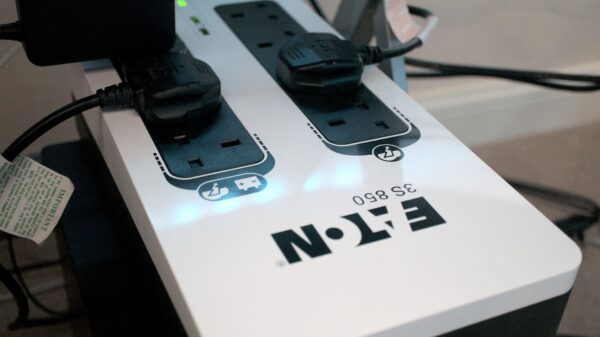UPDATE: A critical security flaw known as SessionReaper has put thousands of e-commerce sites at risk, with over 250 online stores compromised in just 24 hours after the vulnerability was publicly disclosed. Kurt ‘CyberGuy’ Knutsson joined Fox & Friends to highlight the urgent nature of this attack, which allows hackers to hijack active shopping sessions without needing a password.
This vulnerability affects platforms like Adobe Commerce and Magento, used widely by online retailers. The flaw enables cybercriminals to impersonate real customers, leading to data theft, fake orders, and complete control over the affected stores. Security experts at SecPod warn that the potential consequences include stolen customer data and unauthorized transactions.
Why is this attack so urgent? The issue lies in the platform’s inadequate verification system for incoming data, allowing hackers to submit fake session files that are accepted as legitimate. With 62% of affected stores still unpatched weeks after Adobe released a security update on September 9, 2023, the risk of exploitation remains alarmingly high.
As the attack spreads, experts report that many store owners hesitate to install updates, fearing that they may disrupt existing functionalities. Every unpatched store acts as an open invitation for hackers to steal sensitive information or deploy malicious code.
What can consumers do to protect themselves? While store owners are primarily responsible for securing their sites, shoppers must also take proactive steps. Here are vital recommendations to enhance online safety:
1. **Stay Alert**: Monitor how websites function. Signs of irregular behavior like slow loading times or error messages can indicate underlying issues. Always look for the padlock symbol in the address bar, which indicates HTTPS encryption.
2. **Be Cautious with Emails**: Avoid clicking links in unsolicited emails. Secure your data by typing website addresses directly into your browser instead.
3. **Use Strong Antivirus Software**: Equip your devices with reputable antivirus protection that offers real-time monitoring and alerts.
4. **Opt for Secure Payment Methods**: Use services like PayPal or Apple Pay that provide added security and do not expose your card details to retailers.
5. **Shop with Trusted Retailers**: Stick to well-known stores and always check reviews before making a purchase.
6. **Keep Devices Updated**: Enable automatic updates to install critical security patches as soon as they are released.
7. **Employ Unique Passwords**: Create distinct passwords for each online account to limit exposure in case of a breach.
8. **Activate Two-Factor Authentication**: Use this extra layer of security whenever available to protect your accounts.
9. **Avoid Public Wi-Fi**: Refrain from making purchases over unsecured networks. A reliable VPN can provide an added layer of security when necessary.
10. **Monitor Financial Statements**: Regularly check your bank statements for unauthorized transactions and report any suspicious activity immediately.
11. **Report Issues Promptly**: If you notice anything unusual during online shopping, contact the retailer and your payment provider quickly to mitigate potential damage.
Experts emphasize that the SessionReaper attack underscores the speed at which online threats can emerge, particularly when updates are neglected. For retailers, swift patching is crucial, while consumers must remain vigilant in safeguarding their information.
As this story develops, the urgency for both retailers and consumers cannot be overstated. Stay informed and take action to protect your personal and financial data in this rapidly changing cyber landscape.
For ongoing updates, shoppers are encouraged to sign up for the FREE CyberGuy Report, where they can receive valuable tech tips and security alerts directly to their inbox.
Remember, the next time you shop online, the safety of your data may depend on the actions you take today.





































































